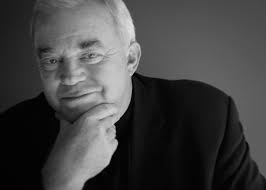The progressive response to the Paris Massacre was equal parts depressing and unsurprising. Much of the political left reflexively assigns any motive to Islamist terrorism except that which the terrorists expressly articulate. This cowardice has already been highlighted and condemned by our most eloquent champions of liberal values. We should amplify this message and celebrate those communicating it.

Those critiques are urgent, but incomplete. Criticism of these apologists has mostly taken place within secular social and intellectual circles. To borrow a term from an unlikely source, the argument between classical liberals and regressive leftists on the nature of Islamist terrorism is a struggle for the “soul” of the secular movement. Each camp wants to establish their stance as the default position of the broader secular movement.

We fail to appreciate how petty and irrelevant our internecine conflict is to anyone else. Particularly in United States, we live in communities in which most of our neighbors still believe in gods. Even if we only consider Christians, those neighbors represent a broad spectrum of political opinion.
For “movement” atheists like myself concerned about political Islamism, it can be awkward and demoralizing to find ourselves allied with conservative Christians. Opposing people like Pat Robertson and Ted Cruz galvanized us. Our unifying contempt for Bush-era Christian conservatives fueled a new brand of secular politics. Conversely, we have become comfortable allying with progressive Christians on issues ranging from LGBT equality to prison reform. Their political agendas closely resemble ours, and they politely ignore or “reinterpret” the more noxious passages (i.e. >95%) in their Good Book.

This pragmatism is useful, but also hazardous. The most politically influential apologists for radical Islam are not secular leftists, but rather progressive Christians. As acolytes of a more palatable cult of human sacrifice, they are eager to dispel any notion that simple religious belief can be the root cause of human misery. We often associate these voices with the “interfaith” movement, but the most influential among them are squarely rooted in progressive Christianity and Judaism. In a recent essay on Sojourners (“Faith in Action for Social Justice”), Jim Wallis sketches out what he argues is a workable plan for defeating ISIS:
The best way to defeat bad religion is with good religion, and the better way to defeat religious fundamentalism is from within rather than trying to smash it from without. That means we also need a global religious coalition of Christians, Muslims, and Jews to unite together to undermine and defeat ISIS with our own religious public proclamations, demonstrations, and authority, especially with the younger generation. ISIS is not only a distortion of Islam, it is a blasphemy. And a unified and courageous assertion of our sacred scriptures, which all condemn their irreligious atrocities, would be the best spiritual weapon against ISIS.
Not a syllable of this passage should go unchallenged. ISIS is a real-world threat that has produced human suffering on a scale unrivaled since the fall of the Khymer Rouge. Its ranks are filed with young men ready to fight, kill and die in order to secure an eternal heavenly fuck-fest.
They actually do believe this. No amount of “religious public proclamations, demonstrations, and authority” will defeat the resolve of a young man who believes these claims. The best antidote to “bad religion” is reality; certainly not with a rebranded, impotent version of the same mythology.
The suggestion that Abrahamic “sacred scriptures” condemn violence may be handily disproven by nearly any passage in said scriptures; namely, the >95% Mr. Wallis and his brethren seem to ignore. Indeed, Christianity’s core belief is that an act of first-degree murder was, the most moral act of all time. Islam has trumped Christianity in terms of ability to inspire real-world violence, but we certainly cannot accuse Muslims of celebrating the torture and murder of Mohammad. Christians? That’s the whole point.

We should, however, pay careful attention to his charge of “blasphemy:” To insult a religious belief system that justifies massive human suffering in our present, he levels a charge that has historically been brought against those brave enough to ridicule religious belief in our past.

Finally Mr. Wallis’s proposed “spiritual weapon” could scarcely have been better crafted to invite my contempt. Was this the weapon used by the French soldiers and policemen who secured Paris on 14 November, or did they bear arms that were more tangible?
I’m not obfuscating Mr. Wallis’s point: The notion of a “spiritual weapon” really is nonsense. Is this weapon based in the air, land, sea, space or cyber domains? What’s the caliber? How does a soldier employ and maintain a such a weapon? What effects does it produce? What is the maximum effective range of a spiritual weapon?

I would also be curious to learn what Mr. Wallis cites as historical precedent for his claim that a “global religious coalition” can reduce human suffering. Indeed, ISIS is undoubtedly the strongest such “coalition” on the planet today: It is a community of the faithful united by their commitment to execute the Will of God. In the strictest sense of the term, ISIS is a “faith-based organization.”

Mr. Wallis is well-versed in faith-based organizations. He served on the White House Council on Faith-Based and Community Partnerships, and remains one of President Obama’s five “spiritual advisors.” He has direct access to the President of the United States. The Commander-in-Chief of mankind’s capable formations and fleets is advised by a man who declares that, “the hardest thing about confronting evil is the painful human tendency to only see it in others.”

These are the declarations of a person who has not personally confronted the pure, distilled evil characteristic of the organizations he’s discussing. I do not know about Mr. Wallis’s personal history with violence. However, I do know how violence shaped my friends and family. I also know how it shaped me. Given this admittedly anecdotal context, I find it difficult to believe Mr. Wallis fully grasps either the nature of armed conflict or the consequences of defeat. “The hardest thing about confronting evil” is summoning the courage to do so in the first place.

Mr. Wallis’s characterization of the problem and his proposed solutions are absurd. His access to the halls of power make them dangerous, yet he does not represent the views of any specific Christian denomination. A recent opinion piece in the Huffington Post absolutely does. In “They Will Know We Are Christian by… Our Fear,” Rev. Adam J. Copeland reminds us how,
(We’re) called to imagine, welcome, and embrace the kingdom of God. In the reality of God’s reign it is the poor, the merciful, the hungry, the peacemakers, the persecuted, and the mourners who God blesses.
Reverend Copeland is a professor at Luther Seminary, the flagship seminary of the Evangelical Lutheran Church in America. He is by all accounts a bright and compassionate human being. He is also promoting policies rooted far more in the Christian martyr fetish than in reasoned concern for the well-being of the American people. Each of the monotheistic Abrahamic faiths emphasizes suffering as a means of achieving communion with God.
Progressive Christians usually support compassionate public policy. They oppose the death penalty, draconian criminal penalties, and military adventurism. They support social welfare programs, universal healthcare, and atonement for historical injustices. However, this compassion is informed by a belief that any suffering they may experience as a result of those positions will only serve to bring themselves closer to God.

As you may have deduced, I believe this god is imaginary. I also believe human suffering carries no intrinsic moral value. Secular progressives should maintain our political alliance with progressive Christians, but we must not allow their spiritual masochism to obstruct our campaign against an existential threat. We do not lose moral credibility when we forge alliances with those against whom we usually fight, nor when we speak out against the flawed and reckless ideas of those whose support we typically welcome.
My foundational moral assumption is that suffering is bad. I believe we can quantify suffering precisely enough to guide our moral decision-making, and that we should select courses of action which produce less suffering than they cause.

Given those assumptions and ISIS’s sadistic enthusiasm, I believe we are morally obligated to destroy ISIS and discredit their uniquely toxic mythology. We need all the help we can get.
This is a good article. It definitely highlights the struggle between trying to get liberal Christians to help out in things that we can agree upon, and on the reasoning behind such principles. At some point, do the ends justify the means?
I read the article you linked to by Wallis, and I agree that his position is folly. Just as one example, I know that he can’t get Missouri Synod Lutherans in his coalition because they’ll fire presidents that pray with non-Lutherans. That, and what the hell does “good religion” and “bad religion” even mean? Why not just come out and say that carrying out Islamist rhetoric is illegal? We did that to the Christian varieties with the Army of God and the Klan domestically.
LikeLiked by 1 person
Thanks, man. I do appreciate it.
After I posted this article, I remembered that I’d actually bought one of Wallis’s books for a family member a few years back. It certainly made sense at the time: I was well into my own de-conversion; the phase where “God is love” and even the most damning scriptural evidence to the contrary just needs to be “taken in context.”
I really do suspect that positions such as Wallis’s are largely a function of advanced philosophical/ethical study combined with a bare minimum of direct personal exposure to violence. [Here, insert requisite *NOT ALL* disclaimer…] Like many far brighter people have mentioned before, he just doesn’t seem to be able to wrap his head around a critical fact: That the young men who actually PULLED TRIGGERS in Paris really did believe they were executing God’s will and would be eternally rewarded.
American and European failures in southwest Asia and north Africa certainly cannot be discounted in the discussion of Islamist terrorism. They matter tremendously. But if these young men were killing and dying to remedy economic or political grievances, surely they’d want at least SOME chance of living to enjoy the fruits of their victory.
In light of jihadis’ enthusiasm for pyrotechnic performance art, it should be readily apparent that they do not expect their reward in this life. They expect it in the afterlife, and *that* is an exclusively faith-based motivation.
LikeLike